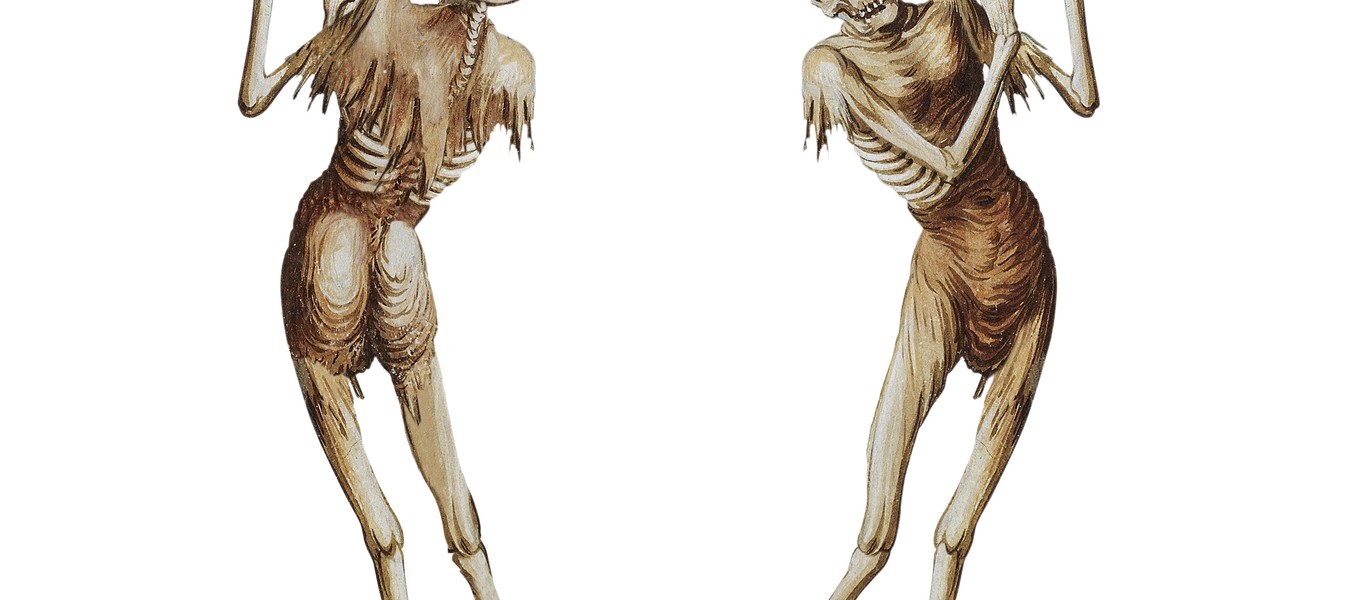Gérard Collin-Thiébaut
Danse Macabre 2001-2015 - Installation - 2016
présentée dans le cadre de l'exposition Panorama 18

Installation
Appearing intermittently on the walls, a dance of death lasting 3 minutes is projected in the given light of the room. The characters in this Danse macabre come from watercolours by the Strasbourgeois painter Albrecht Kauw* (1649), which were themselves small-format copies of a dance of death by Manuel Deutsch (between 1515 and 1519), a monumental fresco nearly 100 metres long painted on wooden panels placed along the inward side of the wall around the Dominican church garden in Bern. Here there are only five musician skeletons, who will meet the cast shadows of visitors and dance with them, for “to this dance we must go.” In 1533 Manuel Deutsch’s dance of death was restored by Jakob Kallenberg and Hans Dachselhofer. The original dance of death thus reaches us doubly deformed, and augmented by the 3D version here. Gérard Collin-Thiébaut first began making audiovisual works in 1981, and began producing them for the stage in 1984. This piece was conceived in 2001 but could not be produced because of technical problems.
Gérard Collin-Thiébaut
Since 1990, has been working on a total artwork, La Maison d’un artiste, a nod to the Brothers Goncourt, and a property in which he lives from time to time. This place of permanent display is an old Capuchin priory, surrounded by high walls and set in an English-style park, designed by the landscapers Brice-Michel Père et Fils in 1870. Gustave Courbet visited during his stays in Ornans. It is here, then, that Gérard Collin-Thiébaut will develop his Oisivetés (“Idlenesses” in the sense of the word as it was used by Monsieur de Vauban), including his Bibliothèque des intervalles and his Arpentages, comprising over 30,000 photographs and videos. He is currently preparing a book on this theme, Et si c’était de l’art ? (to be published by Mamco, Geneva). See also his Inextricables ouvrages, vols. 1 and 2 (vol. 3 is due out soon).
Production
Acknowledgments
Arnaud Petit
